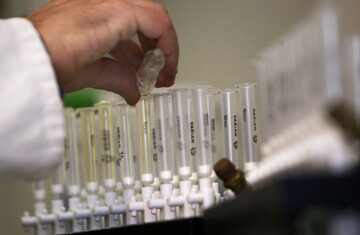WORLD RUGBY SAYS there were no adverse findings in the anti-doping programme undertaken during the 2015 Rugby World Cup.
Rugby’s governing body ran the programme in partnership with UK Anti-Doping (UKAD), gathering 468 samples in total, 200 of which were in-competition and 268 out-of-competition.
A statement from World Rugby today says the programme – which it describes as “intelligence-led (and) targeted” – has recorded “no adverse analytical findings to date.”
Of the 468 samples taken within this anti-doping testing programme, 151 involved drawing blood from players. The remaining 317 tests were carried out on urine samples.
Each of the samples was analysed by the Drug Control Centre at King’s College in London, which is host to a World Anti-Doping Agency (WADA)-accredited laboratory.
World Rugby say their World Cup testing programme was an extension of their existing anti-doping efforts, with more than 1,300 blood and urine samples undertaken across the teams in and out of competition from January to September.
Despite the lack of adverse findings at the World Cup to date, World Rugby’s chairman Bernard Lapasset has warned against complacency in the sport in relation to doping.
“Doping is a major threat to the integrity of sport and World Rugby is committed to a prevention programme of targeted testing and global education to ensure that players at all levels understand the performance and health importance of maintaining a level playing field for all,” said Lapasset in World Rugby’s statement.
“While there were no adverse findings before, or during, Rugby World Cup 2015 that doesn’t mean we can become complacent as to the risks. That is why we have increased our budget in this important area and committed to storing samples for potential further analysis.”
WADA’s David Howman, meanwhile, commended World Rugby for their efforts in anti-doping education, as well as their commitment to the Athlete Biological Passport since 2013.
“With doping in sport very much in the spotlight, it is more important than ever for a sport as global as rugby to ensure it has a programme that combines intelligence-led testing with a strong education initiative such as Keep Rugby Clean,” said Howman.
“World Rugby has taken a positive step in increasing its resources for testing and education, and retaining samples for future analysis as is encouraged under the revised World Anti-Doping Code.”








‘The irish only like route 1… so kick and chase… none of your dutch nonsense..’